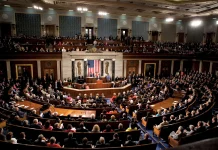Professor Evbogbai Riekpen Jacob Edekin of Edo State University has said that Nigeria’s ability to generate only 3,000 MW of electricity for its 200 million citizens positions it as the country with the world’s largest electricity deficit globally.
Evbogbai, while giving a lecture at the Edo University, referred to a report by the World Bank stating that the country’s power generation capability was low, as only 56.5 percent of Nigerian have access to electricity.
This leaves 43.5 percent with no access to electricity in the country. He added that successive governments have failed to provide stable electricity fr both “domestic and industrial consumers”.
He said, “As we speak, power generating companies can only generate about 3,000MW to over 200 million people in Nigeria.
“According to World Bank report collection of development indicators compiled from official sources in 2018, only 56.5% of Nigerians have access to electricity out of the over 200 million people; meaning that about 97 million Nigerians representing 43.5% do not have access to electricity.
“This makes Nigeria the country with the largest energy deficit in the world.
“Arising from these figures, per head consumption of electric is Nigeria is very low, if Nigeria and, indeed, the entire African continent is to meet the recommendations for sustainable millennium development goals, access to electricity has to be drastically improved.
“These attributes are that power must be available, stable, reliable, economical and safe for consumption”, he stated.
“Successive governments have failed to achieve the desired result of providing electricity for domestic commercial and industrial consumers. “This has greatly hindered sustainable development in Nigeria.
READ ALSO: VAT Revenue Dips By N3.33bn In July
“The Nigeria electricity industry, no doubt, is faced with many challenges; hence her abysmal services and performances were unsatisfactory to the electricity consumers.
‘Arising from this, the company got numerous back acronyms such as Never Expert Power Always (NEPA) (Umez, 2005), No Electrical Power at All Please Light Candle (NEPAPLC) and Please Hold a Candle Now (PHCN).
“Some of the challenges inhibiting the services and performance of the electricity industry in Nigeria include infrastructural constraint, insufficient end user tariff/pricing, inability to reduce aggregate technical, commercial and collection (ATC and C) losses, sector cash shortfall and sector governance (Challenges and Interventions Need in the Nigeria Electricity Supply Industry, 2021; Etim, eta’l, 2019).
“Nigeria at present has 23 electric power generating plants ( Power Generating Plants in Nigeria, 2021) connected to the national grid compared to the United States of America having 22,731 generating plants in its grid, as at 2019 (Nigerian Electricity Power Supply Industry Highlight, 2020).
“Nigeria can only generate about 4,000MW – 5000MW out of which about 3,000MW is available for consumption due to technical losses and infrastructural deficiencies in the electricity value chain despite the 12,500MW installment capacity in its power generations stations.
“Nigeria has 12,500MW of installed generation capacity which largely depends on hydro-power and fossil (gas) power sources which represents 12.50% and 87.50% respectively. It will be pertinent to note that currently, only about 3,500MW to 5,000MW is typically available for onward transmission to the final consumers.
“The lack of reliable and sustainable power is a significant constraint for citizens and businesses, resulting in annual economic losses.
“According to World Bank’s 2020 Doing Business Report (Abayomi, 2021), Nigeria ranks 131 out of 190 countries in getting electricity compared to its 171 position in 2013. This is an improvement.
“However for Nigeria to be in the first 20, there would be need to incorporate photovoltaic power generation in our electricity energy mix”.












